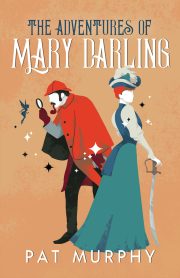Literary Agencies as Publishers: An Accelerating Trend
 Posted by Victoria Strauss for Writer Beware
Posted by Victoria Strauss for Writer Beware
Once upon a time (with one notable exception, mentioned below), the only literary agencies that engaged in publishing ventures were marginal agencies whose micro-publishing divisions existed in large part to make money on clients whose work they failed to place, or scams where agency clients were shunted into pay-to-publish arrangements (often without revealing the connection between the agency and the publisher). If an agency owned a publisher, you could pretty much automatically cross them both off your query list.
That’s no longer so.
Last week, prestigious UK agency Ed Victor Ltd. announced that it was going into publishing, with an ebook/print-on-demand division called Bedford Square Books. Bedford Square will launch in September with six titles, and will focus on backlist (out of print, rights-reverted) books by agency clients.
According to Mr. Victor (quoted in The Bookseller),
My colleagues and I have for some time been of the opinion that a number of great backlist titles by our clients, currently out of print or reverted, should be available to the book-buying public, either because they are as relevant as ever, or because they are classics in their field. We believe this is a valuable service not only for our authors, but also for readers. Although it is our intention to concentrate on our of print and reverted titles, we may publish original books if there is a compelling case to do so.
Only days later, two other major UK agencies–Curtis Brown and Blake Friedman–confirmed that they were considering similar ventures. And these three agencies are not alone. A few weeks earlier, citing frustration over trade publishers’ ebook royalty rates, agent Sonia Land released e-versions of 91 Catherine Cookson books via her own company, Peach Publishing. Similar frustrations spurred agent Andrew Wylie to establish Odyssey Editions in 2010, to epublish backlist titles from the agency’s many famous clients (a subsequent confrontation with Random House, which claims digital rights to pre-digital titles, was quickly resolved). In 2009, Scott Waxman of the Waxman Literary Agency founded epublisher Diversion Books, which focuses on new titles rather than backlist. And then there’s the granddaddy of them all, Richard Curtis’s pioneering Ereads, created in 1999 to publish electronic and POD editions of backlist books by Curtis’s clients and other established writers.
It’s no coincidence that members of the UK’s Association of Authors’ Agents are reported to be privately discussing whether to remove a clause in the AAA’s Code of Practice that prevents agents from acting as publishers. According to Piers Blofeld of Sheil Land (quoted in The Bookseller), “There are obvious issues and potential conflicts of interest, but at heart the role of an agent is to offer advice and support to a writer on their writing career. We’re here to maximise their earnings. We’re not simply there to act as an interface between authors and publishers—that landscape has gone.”
This potential new role for agencies reflects the rapidly-changing realities within the publishing industry. In a very tough publishing climate, agencies are looking for new revenue streams (publishers too, hence the pay-to-play divisions that are popping up at major houses–though with the advent of free electronic self-publishing, I think the POD bubble may be ready to burst). Just as important, the relative ease and economy of digital publishing makes backlist publishing a natural lateral move for agencies with deep catalogs of rights-reverted books and in-print books to which the publisher does not hold electronic rights. It’s an important trend, and I think we’ll be seeing many more of these ventures in the coming months and years.
So, good for agencies. Good for authors? That depends on the terms. Ed Victor will give authors 50% of net, but doesn’t say what net will consist of–and authors will be paid after only after production costs have been recouped from the initial receipts. Andrew Wylie has an exclusive deal with Amazon, limiting his books’ availability to the Kindle. Still, despite such uncertainties and/or limitations, publishing through their agents may be very appealing to authors who want to bring their out of print work back into circulation but don’t want to DIY (and despite the current frenzy over electronic self-publishing, there are plenty of them).
What about authors who do want to DIY, though? Having a publishing division might certainly be an incentive for an agency to discourage such efforts–and if the agency’s author-agent agreement includes interminable agency language, the agency might even be tempted to argue that its claim extended to publishing. What about authors who’d rather their agents tried to re-sell their out-of-print work to a trade publisher? If the agency has its own publishing division, how motivated will it be to do this for books it could easily and perhaps profitably publish itself? How much pressure might it bring to bear to encourage clients to allow it to exploit their rights directly? What about the allocation of resources–how much of an impact might running a publishing division have on an agency’s focus on selling new titles, even if the agency outsources much of the work?
And what about new clients with yet-to-be-published manuscripts, or existing clients whose manuscripts don’t sell immediately? So far, most agency publishing ventures concentrate on backlist–but that may not continue to be the case. For an agency with a publishing arm that publishes new work, to what degree might the prospect of publishing a client itself compromise its motivation to aggressively market the client’s manuscript to other publishers–or, for a prospective client, to offer a publishing deal rather than representation?
Even for unimpeachably reputable agencies, adding a publishing division poses a multitude of conflict-of-interest issues (as Piers Blofeld acknowledges in the quote above). For practical as well as ethical reasons, agencies that are considering an expansion into publishing MUST consider these issues, and come up with policies to address them. One possibility, for agency-owned publishers that will be issuing new work as well as backlist: raising an impenetrable wall between the different branches of the business–i.e., new work by agency clients would never be contracted by the publisher, and new authors signed by the publisher would never be offered representation by the agency.
A big part of the dizzying pace of change in publishing is the rapidity with which the lines are blurring–between publishers and self-publishing, between booksellers and publishers, between agents, editors, and publicists, and between agencies and publishers. More and more, there are no hard and fast rules, and nearly everything needs to be evaluated in context. To top it off, the scams are still out there. It’s more vital than ever to be an educated writer–to continuously inform yourself about the publishing world, and to keep abreast, as much as possible, with what’s going on within it.
In a universe of change, knowledge is your greatest ally–and your best defense.


